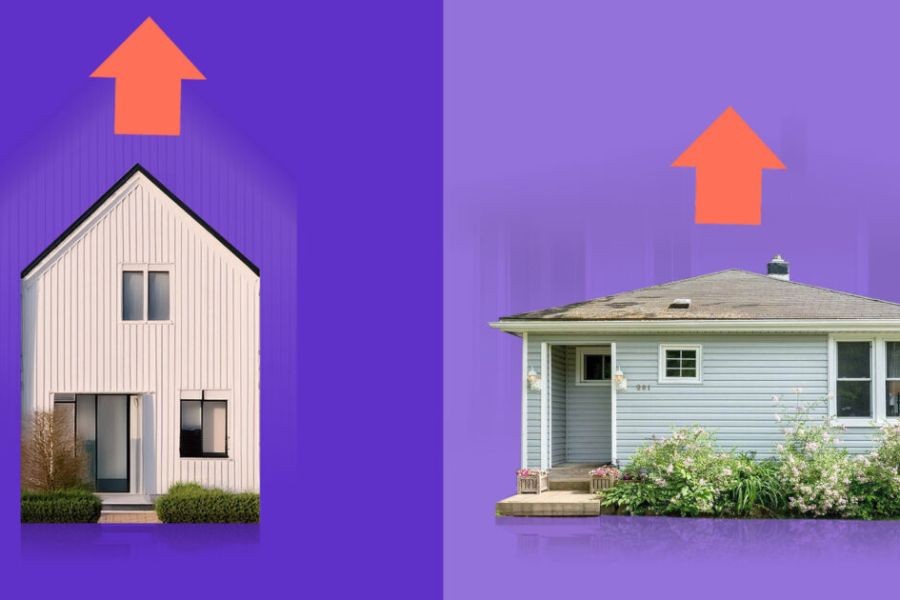New Zealand's real estate market has been a beacon for investors, thanks to its robust economy, stunning landscapes, and a growing focus on sustainability. Yet, choosing the right sustainable property in New Zealand is not just about finding a home or an office space; it's about making a strategic investment that aligns with future environmental standards and economic trends. This article aims to guide you through the step-by-step process of selecting a sustainable property in New Zealand, offering insights backed by data, expert opinions, and real-world examples.
Understanding the Importance of Sustainability in New Zealand's Property Market
As global awareness of climate change intensifies, New Zealand has emerged as a leader in promoting sustainability across various sectors. The Government's commitment to achieving net-zero carbon emissions by 2050 has prompted significant changes in building regulations and energy efficiency standards. According to Stats NZ, the construction sector is responsible for 16% of the country's carbon emissions, making sustainable property development a critical area of focus.
Investing in sustainable properties not only aligns with New Zealand's environmental goals but also offers long-term financial benefits. Sustainable buildings tend to have lower operating costs due to energy efficiency, and they often command higher rental yields and resale values. A report by the Ministry of Business, Innovation & Employment (MBIE) suggests that energy-efficient homes can save up to 30% on utility bills, a significant incentive for both investors and residents.
Step 1: Define Your Investment Goals
Before diving into the property market, it's essential to clarify your investment objectives. Are you seeking a residential property, commercial real estate, or a mixed-use development? Understanding your goals will help you narrow down your options and focus on properties that align with your financial and sustainability aspirations.
Step 2: Research Sustainable Features
Sustainable properties are characterized by several key features, including energy-efficient appliances, solar panels, rainwater harvesting systems, and high-performance insulation. The New Zealand Green Building Council (NZGBC) provides a Green Star rating for buildings, which can be a useful benchmark when evaluating the sustainability credentials of a property.
Look for properties that incorporate passive design principles, such as strategic orientation to maximize natural light and ventilation. These features not only reduce energy consumption but also enhance the comfort and wellbeing of occupants.
Step 3: Assess the Location
Location is a critical factor in real estate investment, and sustainable properties are no exception. Urban areas with robust public transportation networks and proximity to essential services are ideal, as they reduce reliance on cars and promote a lower carbon footprint. In New Zealand, cities like Auckland, Wellington, and Christchurch are leading the way in sustainable urban development, offering numerous opportunities for investors.
Additionally, consider the potential impact of climate change on the location. Coastal properties, for example, may be at risk of rising sea levels, which could affect their long-term viability.
Case Study: Sustainable Development in Auckland
Case Study: Hobsonville Point – A Model of Sustainable Urban Living
Problem: As Auckland's population grew, there was a pressing need for sustainable housing solutions. Traditional developments contributed to urban sprawl and increased carbon emissions.
Action: Hobsonville Point, a master-planned community in Auckland, was developed with sustainability at its core. The project incorporated energy-efficient housing, extensive green spaces, and a focus on public transport connectivity.
Result: The development has attracted over 8,000 residents and achieved a 6 Green Star rating. Residents benefit from a 40% reduction in energy costs compared to traditional homes, and the community serves as a blueprint for sustainable urban living in New Zealand.
Takeaway: Sustainable developments like Hobsonville Point demonstrate the viability and benefits of eco-friendly urban planning. Investors can learn from this model to identify and support similar projects across New Zealand.
Step 4: Evaluate the Financials
Investing in sustainable properties often involves higher upfront costs, but the long-term savings and potential for increased property values can offset these expenses. Conduct a thorough financial analysis, considering factors such as rental yields, maintenance costs, and potential tax incentives for sustainable investments.
Consult with real estate experts and financial advisors to ensure your investment aligns with your financial goals and risk tolerance. The Reserve Bank of New Zealand provides valuable insights into economic trends that can impact property investments, helping you make informed decisions.
Common Myths & Mistakes
- Myth: Sustainable properties are too expensive to be profitable. Reality: While initial costs may be higher, sustainable properties offer lower operating expenses and higher resale values, providing long-term financial benefits.
- Myth: All new properties are sustainable. Reality: Not all new constructions meet high sustainability standards. It's essential to verify the property's green credentials through certifications like the Green Star rating.
- Myth: Sustainable investments don't yield significant returns. Reality: Sustainable properties often achieve higher rental yields and can attract premium tenants who value eco-friendly living.
Future Trends & Predictions
The future of sustainable property investment in New Zealand looks promising. As the government continues to tighten building regulations to reduce carbon emissions, the demand for green buildings is expected to rise. A report by Deloitte predicts that by 2030, sustainable buildings will constitute 50% of all new constructions in New Zealand, driven by both regulatory requirements and consumer demand.
Additionally, advancements in technology will play a crucial role in enhancing the sustainability of properties. Smart home technologies, for example, will enable better energy management and improve the overall efficiency of residential and commercial buildings.
Conclusion & Call to Action
Investing in sustainable properties in New Zealand is not just a financial decision; it's a commitment to a more sustainable future. By understanding the key features of sustainable properties, evaluating locations, and conducting thorough financial analyses, you can make informed investment decisions that align with both your economic and environmental goals.
Are you ready to explore sustainable property investments in New Zealand? Start by researching properties with high Green Star ratings and consult with local real estate experts. Share your insights and experiences with sustainable investments in the comments below!
People Also Ask (FAQ)
- How does sustainability impact property values in New Zealand? Sustainable properties often have higher resale values due to energy efficiency and eco-friendly features, attracting environmentally conscious buyers.
- What are the biggest misconceptions about sustainable properties? A common myth is that sustainable properties are too expensive, but they offer long-term savings and higher rental yields.
- What are the best strategies for finding sustainable properties? Start by researching Green Star ratings, evaluating locations with public transport, and consulting real estate experts in sustainable development.
- What upcoming changes in New Zealand could affect sustainable property investments? Stricter building regulations and increased consumer demand for eco-friendly homes will drive growth in sustainable property investments.
- Who benefits the most from investing in sustainable properties? Investors, tenants, and the environment all benefit, with reduced energy costs, healthier living conditions, and lower carbon emissions.
Related Search Queries
- Sustainable property investment in New Zealand
- Green building certifications NZ
- Energy-efficient homes in Auckland
- New Zealand property market trends 2024
- Eco-friendly real estate developments NZ
- Green Star rating for buildings
- Sustainable urban planning in New Zealand
- Renewable energy incentives NZ
- Future of sustainable housing in New Zealand
- Smart home technologies NZ
































willisxhx24313
10 days ago